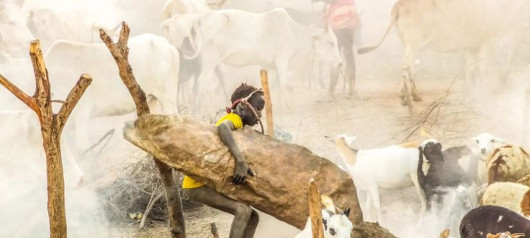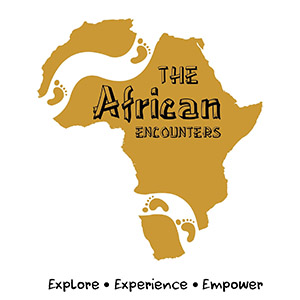A LIVING LEGACY IN SOUTH SUDAN’S MUNDARI CATTLE CAMP
Deep in the heart of South Sudan, along the banks of the White Nile, lies one of Africa’s most extraordinary cultural experiences the Mundari cattle camps. These camps are not just settlements; they are the lifeline of the Mundari people, a pastoralist community whose traditions have remained unchanged for centuries.
For travelers seeking an authentic and immersive experience, a visit to a Mundari cattle camp offers a rare opportunity to witness one of the last truly nomadic ways of life. Here, cattle are more than livestock; they are currency, status symbols, and family members.
The Mundari: Guardians of Cattle Culture
The Mundari people are a small ethnic group known for their deep connection to cattle. Owning a large herd is a symbol of wealth and social standing, and for many Mundari, their entire existence revolves around their animals.
The breed they keep—Ankole-Watusi—is famous for its massive, elegantly curved horns, making it one of the most visually striking cattle in the world. These cows are considered sacred, and their owners take great pride in their care.
Unlike commercial cattle farmers, the Mundari do not sell or slaughter their cows unless absolutely necessary. Instead, they live off the milk, urine, and blood, using sustainable herding practices that have been passed down for generations.
A Day in a Mundari Cattle Camp
Visitors to a Mundari cattle camp will immediately notice the mesmerizing blend of smoke, dust, and golden sunlight. The camps are temporary settlements, set up to follow the best grazing lands during different seasons.
Every morning, as the sun rises, the camp comes to life with a well-orchestrated routine:
• Milking the cows: Fresh milk is collected and used for drinking or mixed with cow blood as a high-protein meal.
• Applying ash to the cattle: Fires fueled by dried cow dung create smoke that keeps mosquitoes away. The Mundari rub ash onto their cattle to protect them from insects and sunburn.
• Releasing the herds for grazing: Young boys and men guide the animals to find the best pastureland.
• Resting and socializing: The midday heat is spent under temporary shelters, where men engage in wrestling matches and storytelling.
• Bringing the cattle back at sunset: The herds return to the camp, where they are kept safe from predators and potential raiders.
At night, the cattle take center stage, with the Mundari sleeping among them. This is not just for protection—it is a sign of their deep connection with the animals.
Why Visit a Mundari Cattle Camp?
For those who appreciate off-the-beaten-path cultural experiences, a visit to a Mundari cattle camp is a journey into one of the most authentic ways of life in Africa.
1. Witness a Vanishing Tradition
In a rapidly modernizing world, the Mundari’s semi-nomadic lifestyle is under threat from urbanization, land disputes, and climate change. Visiting these camps supports cultural preservation efforts and provides a glimpse into a way of life that may not exist in the same form in the coming decades.
2. Experience a Unique Connection Between Humans and Animals
The bond between the Mundari and their cattle is unlike anything else. Every cow has a name, and their owners care for them as one would care for family members. The herdsmen communicate with their cattle through whispers, songs, and gestures, creating a fascinating dynamic that showcases the deep spiritual and emotional connection they share.
3. Immerse Yourself in a Stunning Landscape
The cattle camps are set against a breathtaking backdrop of open plains, the White Nile, and endless horizons. The early morning mist, combined with the smoky atmosphere of the campfires, creates an almost dreamlike setting—a paradise for photographers and culture enthusiasts alike.
4. Engage with the Mundari People
The Mundari are warm and welcoming, eager to share their traditions with those who show respect for their way of life. Visitors can observe and, in some cases, participate in daily activities such as:
• Helping apply ash to the cattle
• Learning the techniques of traditional herding
• Experiencing Mundari wrestling matches, a popular sport that showcases their strength and agility
The Future of the Mundari Culture
Despite their deep-rooted traditions, the Mundari face increasing challenges. Land encroachment, climate change, and modern influences are putting pressure on their way of life. As South Sudan develops, there is a risk that these cattle camps may one day disappear.
However, through sustainable tourism and cultural preservation efforts, the Mundari are finding ways to balance tradition with modernity. Visitors who engage with their culture in a responsible and respectful way contribute to this effort, ensuring that future generations can continue to experience this unique way of life.
Plan Your Visit to a Mundari Cattle Camp
For those seeking an unforgettable cultural adventure, a trip to a Mundari cattle camp offers a rare opportunity to witness one of Africa’s last great pastoralist traditions.
Whether you are a photographer, an anthropologist, or simply an adventurer, this experience will leave you with a newfound appreciation for the deep connections between people, animals, and the land they call home.
Are you ready to uncover the beauty of South Sudan’s living traditions? Let’s make it happen.





